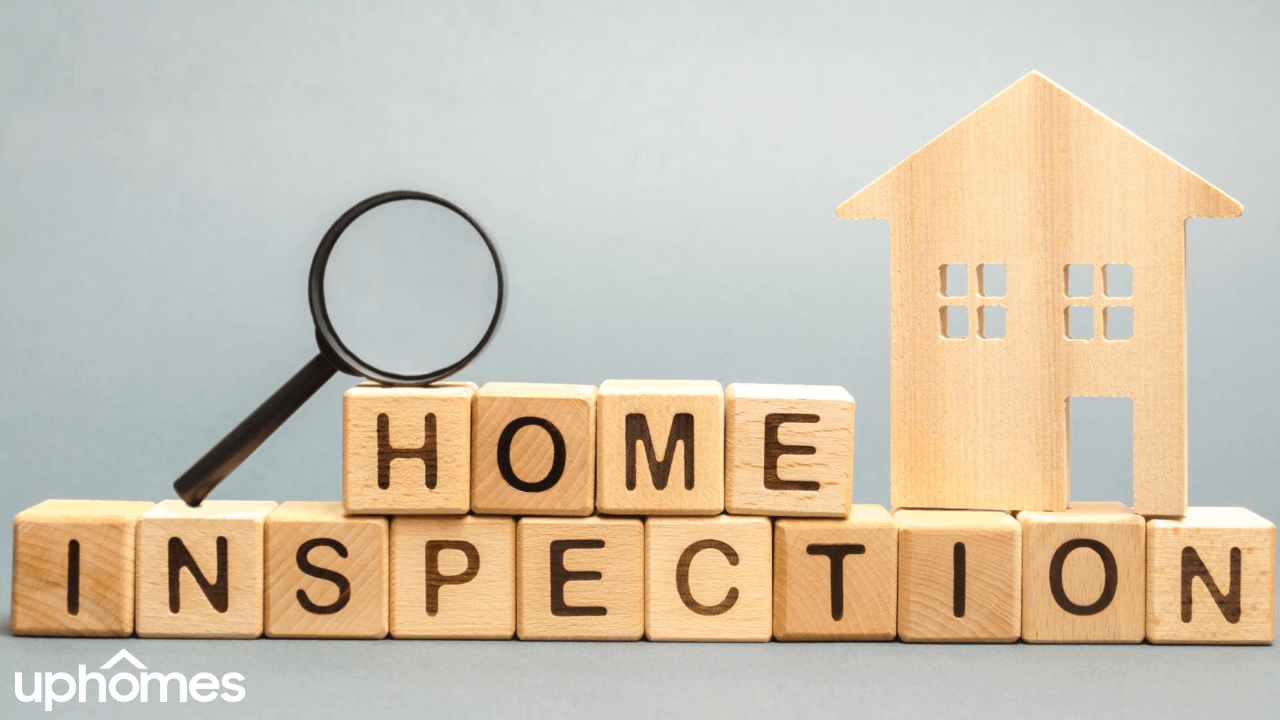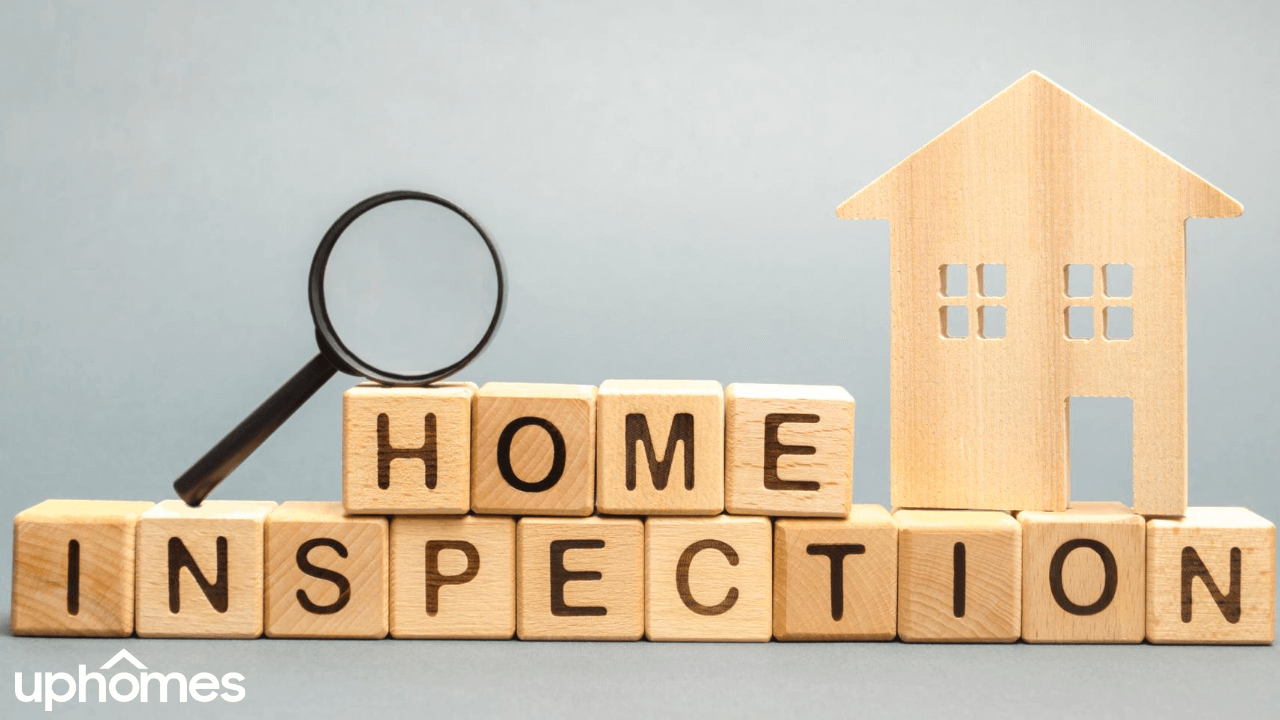August 19th, 2020

What Do Home Inspectors Look For?

One of the first questions our real estate clients ask us is 'what do home inspectors look for?' Home Inspectors are looking for any problem with the house that you would want to be aware of as the potential buyer. Once you are under contract on a home, the home inspection is one of the next steps. A home inspection is the best way for both buyers and sellers to learn about any significant repairs or safety issues that are present in a home. No home is perfect, and there are almost always some defects that will appear on an inspection report – even in the most seemingly perfect homes.
Knowing what to look for on a home inspection report can help every buyer, especially those purchasing for the first time. The good news is: there are plenty of ways to prepare for a home inspection as a seller and details to look out for as a buyer.
In this article, we will dive into the top items inspectors review during a home inspection as well as how the process works, how long it takes, how much home inspections cost, and more.
What is a home inspection?
A home inspection involves a certified home inspector looking in various areas of the home for damage or potential issues. This is what home inspectors look for, any sign of damage, or possible issues with the home. The home inspector will conduct a thorough examination of the physical structure of the home, starting from the foundation and working their way up to the roof. The purpose of the home inspection is to help both buyers and sellers understand any areas of the home that pose a safety risk and are in need of repair. A thorough inspection report is typically provided about 1-2 days after the inspection takes place. The report will provide in-depth information regarding any issues along with pictures, a thorough description of the problem, and recommendations for repair.
Home inspectors check the details in a home most buyers and sellers would not know to check, from wiring in an electrical panel to the insulation in an attic. In doing so, home inspectors ensure that the home is safe for a buyer and doesn’t have major structural damage in need of repair.
What Do Home Inspectors Look For?
According to the American Society of Home Inspectors (ASHI), which is the oldest professional society of home inspectors, the home inspection process will include reviewing the following in a home:
Heating, Ventilation & Air Conditioning (HVAC) System
The first step in inspecting the home’s HVAC system involves doing a thorough visual inspection to ensure the furnace, heat pump, air conditioner, ducts, and thermostat are all functioning properly. A home inspector will also look for any signs of gas or carbon monoxide leaks. After doing a visual examination, they will then manually check the systems to ensure they are in working condition. To check the performance of a gas or oil furnace, they ensure it lights properly and heats or cools the home. Testing heating during the summer or air conditioning during the winter could damage the system and provide an inaccurate reading, so home inspectors typically will only check the heating in the winter and only check the air conditioning in the summer.
Electrical
The first step in inspecting the home’s electrical involves inspecting the wires outside of the home that enter the electrical panel. They will also ensure that trees and bushes aren’t interfering with the wiring. In an older home, they will inspect visible wires and check that they are covered with insulation and do not have metal showing. Newer neighborhoods will have all wiring underground. The home inspector will then open the electrical panel to ensure that the panel is connected by circuit breakers instead of fuses, as fuses are illegal in most parts of the United States. They will also check the size of the main breaker to ensure it has enough amps for the electrical needs in the home (it should typically be more than 100 amps). They will check the wiring to ensure copper wiring is used instead of aluminum, none of the wires are lose, and there isn’t any rust inside the electrical panel. After completing the electrical panel, they will test all wall outlets in the home using a multimeter. They will then check all light switches throughout the home and take note of any that do not work.
Plumbing
A home inspector will check all toilets, bathtubs, showers, sinks, waterlines, pipes, and any other areas of the home where water runs through. They will test the flappers, filler mechanisms, and levels in all toilets to ensure they work properly. They will also check the hydrants and pipes outside of your home for leaks and will ensure there is proper anti-freeze protection in place. Lastly, they will check the temperature, pipes, and pressure relief values in all water heaters.
Attic
A home inspector will check the condition of the insulation in the attic, as insulation determines the energy efficiency within the home. They will also check the attic’s ventilation, as a poorly ventilated attic can bring in excess moisture and lead to mold growth. They will look for any signs of water stains, damaged insulation, or any other signs of leaks to ensure water damage is not present. If the furnace is in the attic, they will check for rust around the furnace as that is a sign of water damage. They will also look for any signs of fire damage such as scorched wood or soot. The attic’s interior will also help the home inspector assess the roof and overall framing of the home, which will help to determine whether or not the home’s roofing system is strong enough to protect itself against high winds.
Roof
Home inspectors will only go onto the roof if it is safe, meaning the roof must be less than three stories tall and shouldn’t be too steep. They also won’t check it if it is raining, snowing, or particularly windy. If they are able to inspect the roof, they will check the gutters, flashing, and will look for any warped or missing shingles.
Walls, Ceilings, and Floors
A home inspector will check the walls, ceilings, and floors for any discoloration, mold, or water damage. They will check for sagging ceilings or cracks and other structural damage in the walls. They will also look for uneven baseboards in the flooring or bulging areas in the walls. It is important to note that the inspector will not place negative marks on cosmetic items, only structural damage or areas in need of repair due to safety hazards.
Doors and windows
The home inspector will check all windows and doors to ensure they open and close properly. They will indicate the window type that is used in each room and will ensure that each bedroom has at least one operating window that can be used to exit the home in the event of an emergency. They will also assess the doorframes to ensure they aren’t sagging into the floor or off-balance, as that could indicate a problem with the home’s foundation.
Foundation
When assessing a home’s foundation, most home inspectors will start with the outside of the home and work their way in. Signs of a faulty foundation include a chimney leaning away from the home, a sunken porch, or cracked steps leading up to the house. On the inside of the home, if doors and windows are difficult to close or there are considerable cracks in the drywall or ceiling, that could be an indication of foundation problems. Several cracked tiles or lopsided flooring could also suggest foundational issues. In addition to the foundation, the home inspector will also assess the home’s framing and other structural elements to ensure they are intact. Ensuring the home’s structure is free of mold and is in the strong condition is an extremely important aspect of the home inspection process.
Basement
While not as common in Charlotte, North Carolina, homes with basements will also be thoroughly inspected. As with other parts of the house, the inspector will spend time looking for signs of water damage in the basement. Common signs of water damage include a musty odor, mildew or mold growth, damaged walls, and uneven flooring. The inspector will also check the areas around the basement doors and windows to ensure that water can’t enter.
After the home inspection is complete, the home inspector will take a day or two to write up a detailed report with their findings. They will also provide information on how to repair the items in the report.
When does the home inspection take place?
There are two points in time when a home inspection is typically requested. If you are a buyer, you will most likely request a home inspection after putting in an offer on a home. If there are considerable structural issues or items in need of repair, you may be able to negotiate the purchase price of the home based on the amount of money that will be spent on repairing those defects. Alternatively, you may request that the seller takes care of all repairs so that the house is move-in ready upon purchasing it. However, bear in mind that if you leave the repairs up to the seller, they may opt for going the cheapest route, which isn’t always the highest quality option. If you want the repairs to be completed in a way that you feel comfortable and confident in, it is best to manage the repair process on your own.
If you are a seller, you may want to have your home inspected prior to putting it on the market for sale. In doing so, you will know exactly what is in need of repair prior to bringing buyers through your home. That way, you can potentially skip a lengthy negotiation process regarding repairs with a buyer down the line.
How long is a home inspection?
Most home inspections typically last about two to four hours. However, this depends on the size of the home and number of defects. If it is an older home, the inspector may need extra time to review. Homeowners who properly prepare for a home inspection also help lessen the length of time inspectors may need to conduct the inspection.
How much is a home inspection?
A home inspection will typically range between $300 and $500, but this can vary. Here in Charlotte, North Carolina, a home inspection will typically start around $250 or $300 but could go up to as high as $600 or more if you live in an older and significantly large home. It is advised to choose a home inspector through The American Society of Home Inspectors (ASHI), as members are typically extremely knowledgeable and are held to a high ethical standard.
Unfortunately, many home inspections will come with follow-up costs. If mold, lead paint, asbestos, termites, radon, or other harmful substances are found in your home, you will need to hire a professional to begin the removal process.
Does the seller or buyer pay for the home inspection?
After making an offer on the home, the buyer will typically order and pay for the home inspection. This can be up for negotiation, and sellers sometimes end up paying for the home inspection, but it typically is paid for by the buyer.
If you are a seller and have had your home inspected prior to putting it on the market, you can provide a copy of that report to prospective buyers. However, some buyers may not be willing to accept a home inspection report and may want to hire an inspector on their own.
How sellers can prepare for a home inspection:
There are several ways sellers can help make the process easier for home inspectors. Here are some ways homeowners can prepare their home to help the inspector:
-
For starters, try to declutter as many areas as possible – especially in the basement and attic. The home inspector will need a clear path to get to the HVAC, furnace, and various other areas, so providing a clean, decluttered path will make a significant difference.
-
If you have already moved out of the house and the utilities have been turned off, request to have them reconnected.
-
Leave any keys in an accessible area for the inspector. For example, the keys to the electrical panel or basement.
-
Turn on pilot lights for furnaces and fireplaces (even during the warmer months).
-
Prior to the home inspection, do a thorough inspection of your home on your own. Are any tiles out of place? Has your HVAC been acting up? If you suspect problems with the furnace, HVAC, or other areas of the home, it may be worthwhile to get it professionally serviced leading up to the inspection. The cleaner your inspection report turns out, the less negotiating your buyer will want to do, leading to potentially more money in your pocket.
Should I attend the home inspection if I am the buyer?
It is typically advised that the buyer attends the home inspection and the seller does not. The seller can try to distract the inspector from certain areas in the house and may sway the accuracy of the inspection report. The buyer, on the other hand, should attend because they can ask questions regarding any issues that arise. After the inspection is complete, if you receive a report that is filled with defects, don’t feel the need to immediately run for the hills as a buyer. The perfect home, unfortunately, does not exist, so even the most seemingly perfect home will have some problems happening beneath the surface. If the issues are fixable and aren’t related to major structural damage within the home, it is probably worth negotiating an appropriate purchase price and moving forward with the transaction. On the other hand, if the problems are so severe that they will cause potential harm to you or your family’s health, it may be worthwhile to discuss other options with your real estate agent.
If you are considering buying a home in Charlotte, please connect with us today so one of our local Real Estate experts can assist you!

Ryan Fitzgerald
Hi there! My name is Ryan Fitzgerald, and I am a REALTOR®. My goal is to help you learn more about real estate through our Real Estate Blog! Hopefully, you enjoyed the above blog post and it found a way to provide help or value to you. When you're ready to buy or sell a home of your own let us know here. Please feel free to join the conversation by dropping us a comment below.

